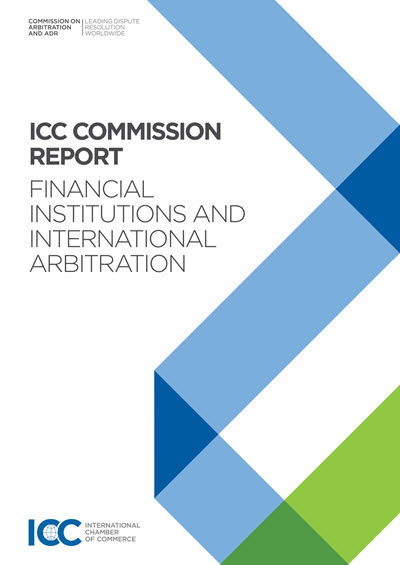The ICC Taskforce on Financial Institutions and International Arbitration, led by Co-Chairs Georges Affaki and Claudia Salomon, recently released a Report on the use of arbitration as a dispute settlement method in resolving financial disputes, i.e., banking and finance arbitrations, showing that arbitration could be used at a much larger scale bringing numerous benefits to financial institutions in settling their disputes. The aim of setting up a special ICC Taskforce on this topic was to study the use, perception and experience of international arbitration by financial institutions and also to break down the misconceptions about the arbitration being unsuitable for certain segments of the banking sector. The end result of the two-years’ work was a Report with a set of recommendations for tailoring arbitration procedure to suit the needs of the banking and finance sector.
Traditionally, banks and financial institutions have preferred national courts in key financial hubs such as London, New York, Frankfurt, Hong Kong and Singapore. However, with the 2008 crises they have increasingly started turning to international arbitration, finding it a suitable and important alternative to litigation, especially in large, complex and confidential transactions. The study covered various different types of financial institutions, including multilateral and bilateral development financial institutions and export credit agencies providing credit-enhancement or risk-mitigation tools.
In general, the ICC Report suggests that institutional arbitration is certainly preferred over ad hoc proceedings, with the most frequently chosen arbitral seats in the large arbitration centers such as Paris, London, New York, Singapore, Hong Kong and Geneva. The ICC taskforce studied in detail a wide range of financial activities undertaken by banks, private and sovereign wealth funds which could be suitable for international arbitration: sovereign lending, regulatory matters, international financing, Islamic finance, trade finance, asset management, inter-bank disputes and derivatives, amongst others.
The Report also makes recommendations for financial institutions to tailor the process and techniques to control time and costs for the particular needs of banking and finance arbitrations, for example by including provisions to consolidate proceedings, limiting number of rounds of submissions, allowing for partial awards, etc., which is sound advice for any international arbitration.
It is especially worth mentioning the emphasis put on the protection offered by investment treaties. The ICC Report reveals that results of a survey show that 47 investment arbitrations have dealt with financial institutions and/or financial products. It suggests that investment treaties are one of the main reasons for a growing interest in arbitration amongst banks, since this allows bank investors to seek remedies before a “neutral” tribunal and impartial tribunals, which is especially important for international business and transactions.
There are many reasons why arbitration may be preferable to local courts for banking and finance arbitrations. Below, you will find a copy of the ICC Report.
